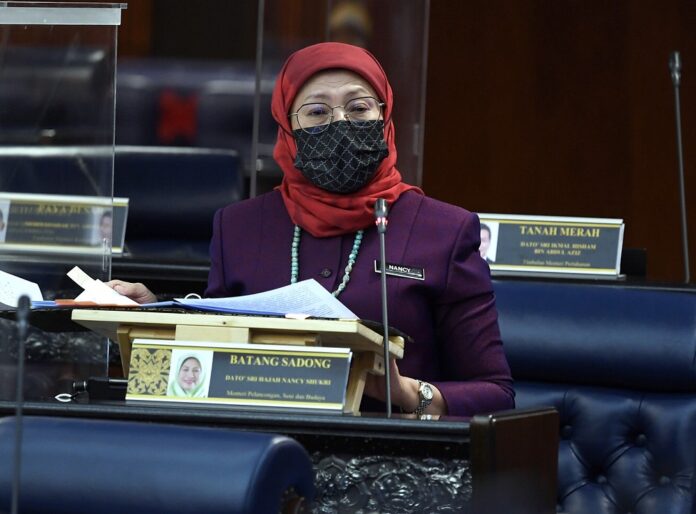Tourism, Arts and Culture Minister Datuk Seri Nancy Shukri says the tourism sector has faced over 12 months of little or no business as well as job losses. – Bernama pic
KUALA LUMPUR, Oct 7 – Malaysia’s estimated losses in tourist expenditure are set to rise further to RM165 billion this year from about RM135 billion in 2020 due to the implementation of the movement control order 3.0 (MCO 3.0), said Tourism, Arts and Culture Minister Datuk Seri Nancy Shukri.
She said the tourism sector has faced over 12 months of little or no business as well as job losses.
“Tourism is more than just leisure, because it is also the provider of jobs and stable incomes, supporting one in every four jobs, particularly for destinations most reliant on tourism, remote areas, and semi- or low-skilled labour.
“Whilst there are still locations with challenging situations health-wise and the borders are generally closed, the region is starting to reopen while the level of tourism operational activity is low,” she said at the 2021 Asean Leadership and Partnership Forum today.
Nancy said before the borders reopen, it is important to be prepared with a recovery plan and re-strategise in order to gain a competitive edge for the tourism industry, particularly in the Asean region.
“This is because market insights predict that once borders are opened, the focus of tourists will be on closer-to-home destinations.
“Hence, it is important for us to strengthen the cooperation among Asean countries in facilitating the ecosystem of international arrivals,” she explained.
The minister said Malaysia is now preparing to open Langkawi for international tourist arrivals soon following the success of the Langkawi domestic travel bubble.
“The Langkawi domestic travel bubble has been a success since it began on September 16, 2021, with a total of 38,748 domestic tourist arrivals and RM15.97 million in tourism receipts recorded.
“Malaysia targets 400,000 domestic tourist arrivals for Langkawi until December 2021,” she said.
The forum, themed “Rebuilding Asean Towards Sustainable Recovery”, was organised by KSI Strategic Institute for Asia Pacific. – Bernama



